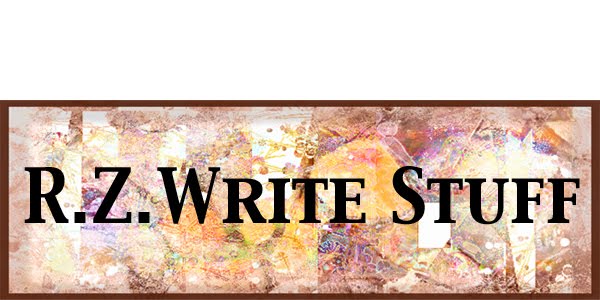 Show, Don’t Tell. And How, Pray Tell?
Show, Don’t Tell. And How, Pray Tell?Use words which appeal to the senses, sight, smell, sound, touch, taste
Be Specific to the situation, the person, the setting. Here the landscape
foreshadows characteristics the writer experiences about a place,
Feet skidding along
the graveled slope
through clumps of renegade grass,
the track was obscured by vagrant brush
hostile heads frayed and spiked like goths,
perforated with piercings.
the graveled slope
through clumps of renegade grass,
the track was obscured by vagrant brush
hostile heads frayed and spiked like goths,
perforated with piercings.
Avoid conceptual words. A word with a concrete meaning may be better than one that abstractly tries to express an idea. Abstract words are those describing mental functions, rather than experienced emotionally.
Those long awkward words get in the way of the natural rhythm of speech which is best easily imagined. (Like pestiferous, musicology, proselytize, foliculated, or… you get the idea) A word like hippopotamus, however, worked into a rhythmic phrasing could be extremely visual, and effective.
Emotional descriptions are more potent when related in a context of behavior and physically sensed events.
I want you to wash me in your memories;
and pillow me with your voluptuous body
while I hold fresh fruit to your teeth.
I want your flavor to linger on my tongue.
and pillow me with your voluptuous body
while I hold fresh fruit to your teeth.
I want your flavor to linger on my tongue.
Use metaphor. The concrete objects of the world are simple, strong and eloquent as metaphors for other ideas, and not only themselves
Willowhisp
Poetry, elusive muse,
etherial as willowhisp;
when grasped escapes,
like Amour and Psyche,
the sensuous mirrored by the soul;
reflections, one of the other.
Is it not an irony,
words lack substance,
when most abstract,
and only concrete things may tempt
this muse to one's embrace?
Objects, feelings, images,
speak of beingness
through sound and light,
and touch upon a sensate skin.
Apples, twigs, moon or sod
all metaphors made by God,
word made flesh.
Poetry, elusive muse,
etherial as willowhisp;
when grasped escapes,
like Amour and Psyche,
the sensuous mirrored by the soul;
reflections, one of the other.
Is it not an irony,
words lack substance,
when most abstract,
and only concrete things may tempt
this muse to one's embrace?
Objects, feelings, images,
speak of beingness
through sound and light,
and touch upon a sensate skin.
Apples, twigs, moon or sod
all metaphors made by God,
word made flesh.
Keep descriptions short, but precise. Avoid double adjectives together in one place.
For instance I shortened “brittle renegade grass” to renegade grass.
Use active verbs which are visually strong.
Toby lofted himself
over the fence in a perfect arc,
As freely as the wild deer
he followed far and away
And into the joyous mud
Again, Show, don’t tell. Make the setting, imagery, and language speak the emotion
and conclusion you are expressing. Lead the reader to your conclusion, as well as you are able.
Exercise: Start a Glossary of SensoryExpressions, such as the one below. Write a poem using some of these or other sensory words. Try to mix the senses in ways that one sense is described by terms usually thought of as another:
She buried her nose in the abandoned mitten. It was rich with a dark brown smell, and instantly the boy who had dropped it flashed in her mind. She felt her face flush with heat. The felted wool was rough on her skin… she knew she would not return it…. and put it inside her coat pocket.
Glossary of Sensate Impressions
Sight: Colorless, Black Smokey, Transparent, Misty, Shiny, Irridescent
Smell: Smoky, Aroma, Oily, Lemony, Peppery, Minty
Touch: Palpable. Soft, Palpable, Hard, Warm, Spongy, Smooth, Velvety
Sound : Musical, Roaring, Squawk, Crash, Thud, Buzz
Taste: Sweet, Acrid, Mealy, Sour, Salty, Sticky, Bitter
6th Sense: Presence, Oppressive, Forceful, Magnetic, Radiant, Vibrant


No comments:
Post a Comment